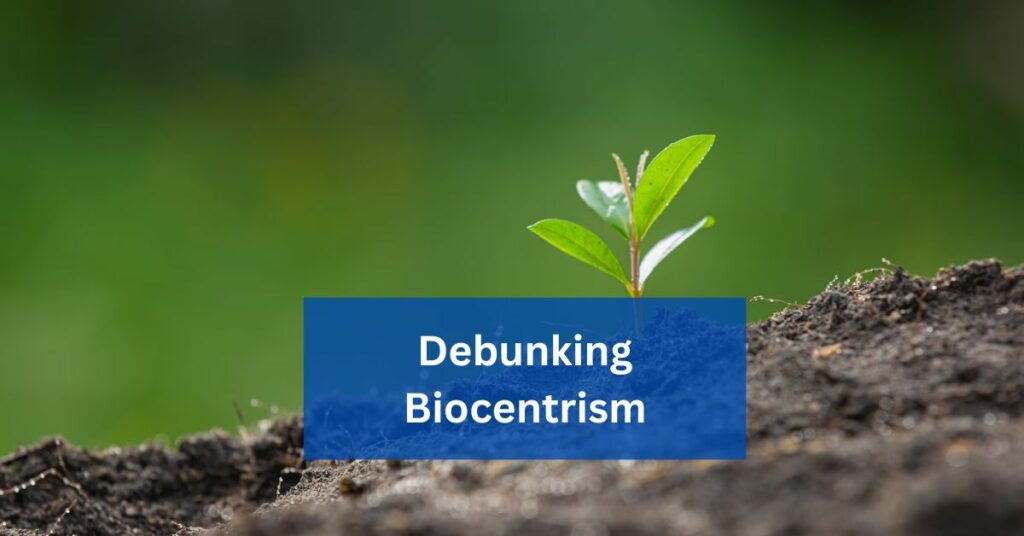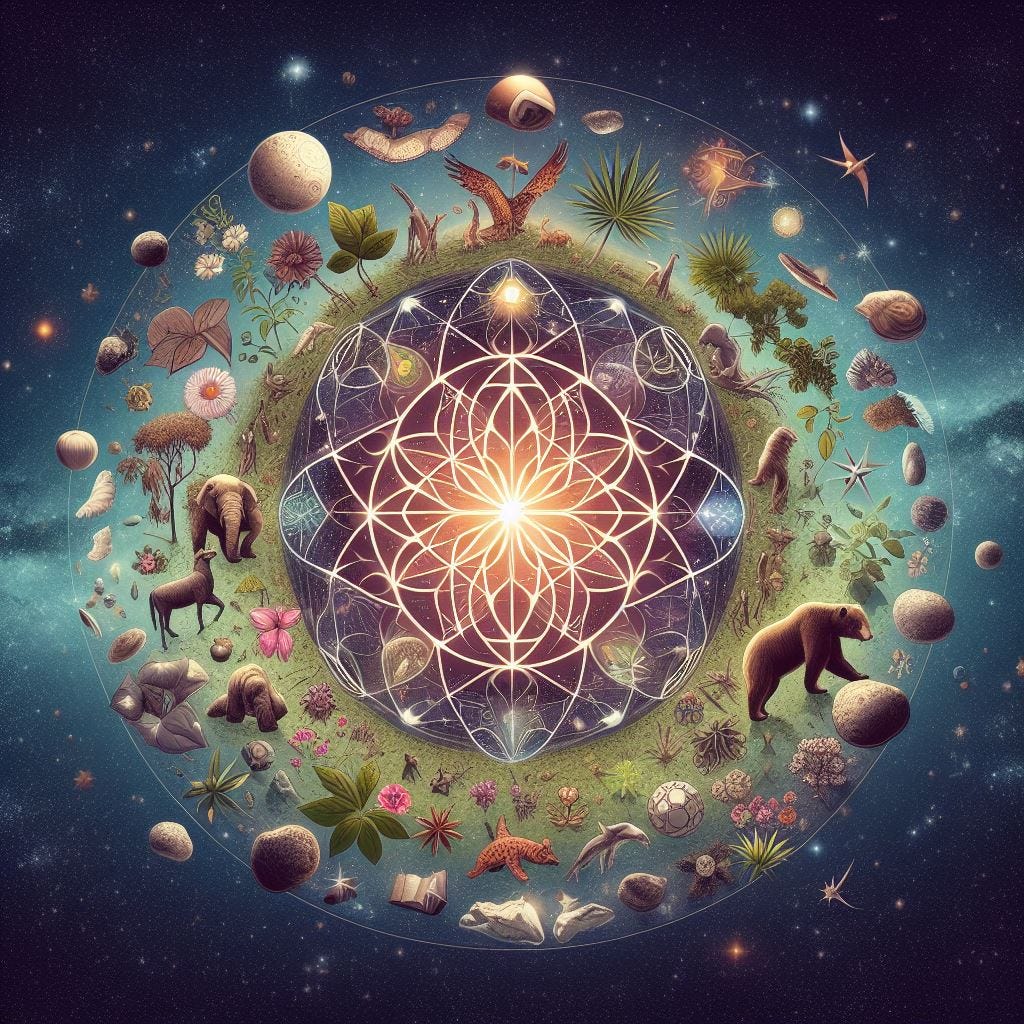Debunking Biocentrism – Separating Philosophy From Science!

In recent years, the concept of biocentrism has stirred both curiosity and controversy. Proponents argue that life and consciousness shape the universe, challenging traditional scientific perspectives.
Biocentrism is a way of thinking that says life, living things, and being aware are really important for figuring out what the world is like. It believes that life and being aware are what makes the universe exist, not the other way around.
In this exploration, we delve into the claims of biocentrism and examine the criticisms and counterarguments that have led many scientists to question its validity.
What is Biocentrism? – Let’s Take A Deeper Look!
Biocentrism is a philosophical stance asserting that life and consciousness are fundamental to the existence of the universe.
Originating from the work of Robert Lanza and Bob Berman, biocentrism proposes that the universe is a product of biological processes and consciousness, challenging the conventional view that considers life as a mere byproduct of physical laws.
The Key Rule of Biocentrism – A Closer Look!

1. Life as the Central Force:
Biocentrism’s foundational principle revolves around the assertion that life is the driving force behind the universe. Unlike traditional cosmological models that attribute the creation of the universe to fundamental physical laws, biocentrism contends that life is not a mere consequence but a fundamental aspect of cosmic existence.
Proponents argue that by placing life at the center, a new perspective emerges that emphasizes the interconnectedness of all living things. This interconnectedness, they claim, is not incidental but rather an inherent quality that defines the nature of reality itself.
2. Consciousness Shapes Reality:
The most provocative claim of biocentrism is that consciousness plays a pivotal role in shaping the nature of reality.
According to this tenet, the observer is not a passive entity merely perceiving the universe; instead, consciousness actively participates in creating and defining reality.
Drawing inspiration from philosophical ideas such as idealism, biocentrism challenges the notion that the external world exists independently of observation.
It suggests that consciousness is not a passive observer but an active contributor to events unfolding, influencing the very fabric of reality.
3. Reinterpretation of Quantum Mechanics:
Biocentrism leans heavily on interpretations of quantum mechanics to bolster its claims. Quantum mechanics, the branch of physics that deals with the behavior of subatomic particles, is known for its counterintuitive principles, such as superposition and wave-particle duality.
In the context of biocentrism, proponents argue that the act of observation by a conscious entity collapses the wave function, determining the outcome of quantum events.
This reinterpretation of quantum mechanics aligns with the idea that consciousness is not just an observer but a dynamic force that shapes the quantum realm.
However, this interpretation is only sometimes accepted within the scientific community. Many physicists emphasize that the traditional interpretation of quantum mechanics, which doesn’t require consciousness for wave function collapse, remains the most widely supported and experimentally validated perspective.
Addressing Some Criticisms – Unlocking New Perspectives!

1. Lack of Empirical Evidence:
One of the primary challenges facing biocentrism is the need for empirical evidence supporting its fundamental tenets.
While philosophy sparks intellectual curiosity, the scientific community demands more than conceptual musings. Empirical observations, reproducible experiments, and measurable data are essential to scientific inquiry.
Biocentrism, as it stands, lacks the concrete evidence needed to elevate it from a speculative idea to a scientifically credible theory.
Critics argue that without empirical support, it remains a philosophical proposition rather than a substantiated scientific framework.
2. Misinterpretation of Quantum Mechanics:
Biocentrism’s reliance on interpretations of quantum mechanics introduces another layer of controversy. Quantum mechanics is a highly complex field with nuances and subtleties that are often challenging to grasp fully.
Proponents of biocentrism argue that their reinterpretation aligns with the mysterious and unpredictable nature of quantum phenomena.
However, many physicists contend that such reinterpretations are speculative and not universally agreed upon within the scientific community.
Quantum mechanics is a robust and well-established field, and applying it to support philosophical ideas requires a careful and nuanced approach.
The Conflation Of Philosophy And Science – The kingdom Of Philosophy And Science!
Biocentrism occupies a unique space where philosophy and science intersect. While philosophical discussions can provide valuable insights and stimulate intellectual discourse, they differ fundamentally from scientific inquiry.
The scientific method demands empirical evidence, testable hypotheses, and the ability to predict and explain observable phenomena.
Critics argue that biocentrism, in its current form, blurs the lines between these two domains. While it offers philosophical perspectives on the interconnectedness of life and consciousness, it does not adhere to the rigorous standards of scientific validation.
The Skeptical Stance – Unpacking Criticisms Of Biocentrism!
1. Lack of Empirical Evidence:
Biocentrism’s foundational premise—that life and consciousness shape the universe—faces significant criticism due to the absence of empirical evidence supporting such claims.
In the scientific realm, theories must be grounded in observable and measurable data. However, biocentrism leans heavily on philosophical and speculative reasoning, lacking the concrete evidence to validate its assertions.
Proponents of biocentrism argue that the subjective nature of consciousness makes it challenging to measure objectively.
While this is valid, the scientific method requires rigorous attempts to quantify and validate theories. The absence of empirical evidence leaves biocentrism in a precarious position within the scientific community.
2. Misinterpretation of Quantum Mechanics:

Biocentrism often draws on interpretations of quantum mechanics to bolster its claims, particularly the notion that consciousness influences the outcomes of quantum events.
However, critics argue that these interpretations are not universally accepted within the scientific community.
Quantum mechanics is a complex and nuanced field, and various interpretations exist. Biocentrism selectively adopts interpretations that align with its philosophy while overlooking the diversity of opinions within the scientific community.
Applying quantum principles to support biocentrism has raised eyebrows among physicists, who caution against oversimplifying and misrepresenting the intricacies of quantum theory.
3. Conflation of Philosophy and Science:
A fundamental criticism of biocentrism is its tendency to blur the lines between philosophy and science. While philosophy and science can complement each other, they operate under distinct principles.
Science relies on empirical evidence, experimentation, and the ability to make testable predictions. At the same time, philosophy often explores abstract concepts and seeks to understand the nature of existence through introspection and contemplation.
Biocentrism’s inclination to present philosophical musings as scientific theories has led many scientists to question its validity.
This conflation undermines the credibility of biocentrism within the scientific community, as it does not adhere to the established methodologies and standards of the scientific method.
4. Alternative Explanations:
Critics of biocentrism argue that many phenomena it attempts to explain through consciousness have alternative, scientifically grounded explanations.
For instance, biology, chemistry, and physics processes offer well-established frameworks to understand various observed phenomena without invoking consciousness as a central driving force.
Skeptics contend that attributing natural phenomena to consciousness may hinder scientific progress by diverting attention from more empirically supported avenues of inquiry.
Emphasizing established principles allows for a more robust understanding of the natural world instead of relying on speculative and untested theories.
Addressing Skepticism For A Holistic Understanding – Take The First Step Towards Clarity Now!
In the pursuit of knowledge, skepticism plays a crucial role. Skepticism encourages critical examination, prompting scientists to scrutinize theories and claims rigorously.
While biocentrism has sparked interest and philosophical contemplation, addressing the scepticism it faces is essential for a comprehensive and nuanced understanding of its place within the scientific landscape.
As the discourse continues, the scientific community remains open to exploration but demands a level of evidence and rigour that biocentrism has yet to provide fully.
Frequently Asked Questions:
1. Does biocentrism have any scientific support?
Biocentrism needs more widespread scientific support. While it has gained attention, particularly in popular science literature, most scientific communities remain skeptical due to the absence of empirical evidence.
2. Can consciousness truly shape reality?
The idea that consciousness shapes reality, a fundamental tenet of biocentrism, is highly debated. Most physicists argue that the influence of consciousness on physical reality is not supported by current scientific understanding.
3. Are there alternative explanations for the phenomena biocentrism attempts to explain?
There are alternative scientific explanations for various phenomena that biocentrism attributes to consciousness. These explanations often rely on established principles of physics, chemistry, and biology.
Conclusion:
As we navigate the intersection of philosophy and science, it is crucial to maintain a discerning approach. While biocentrism may spark philosophical contemplation, it has yet to establish itself as a scientifically validated theory.
As science evolves, so will our understanding of the universe, inviting us to explore the mysteries that continue to unfold.
Read more:







